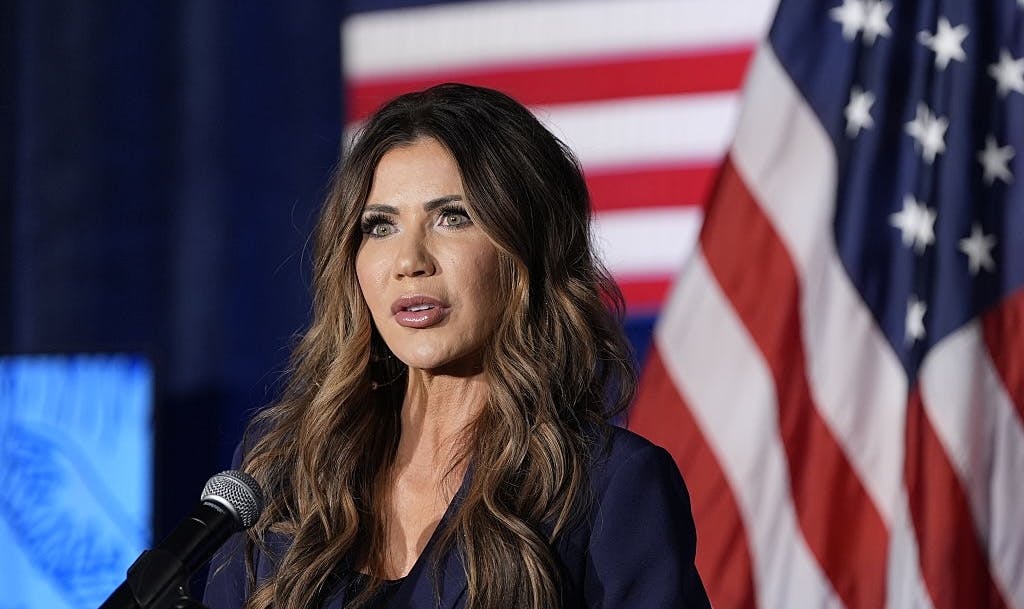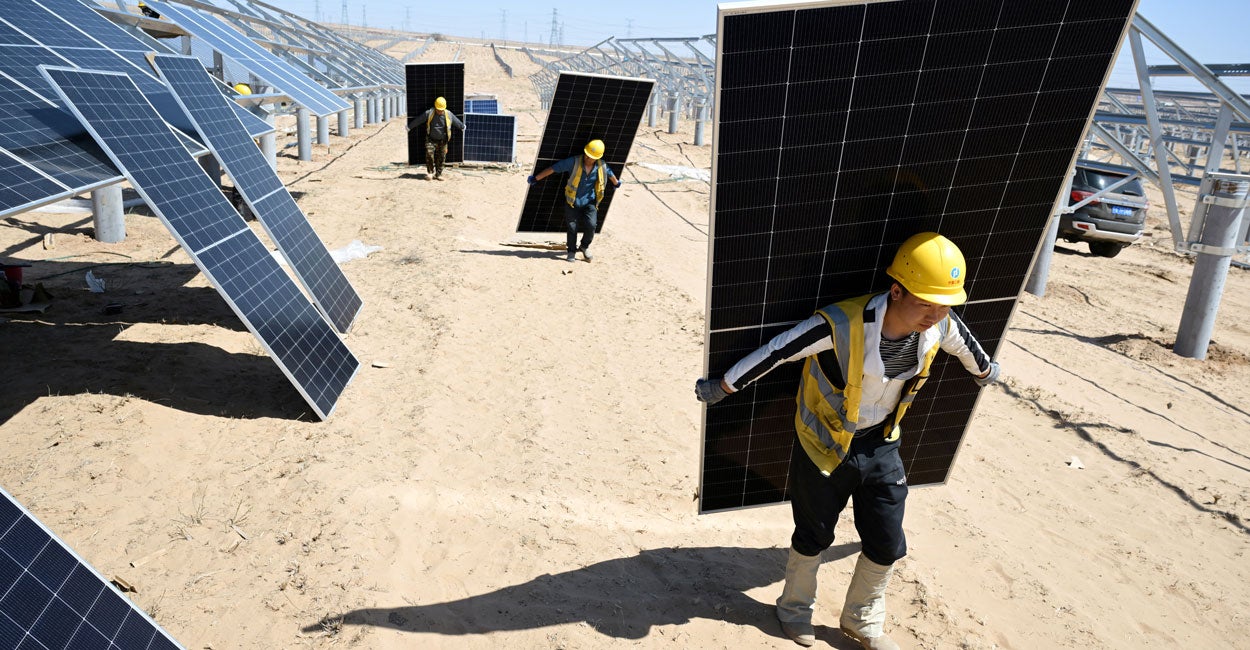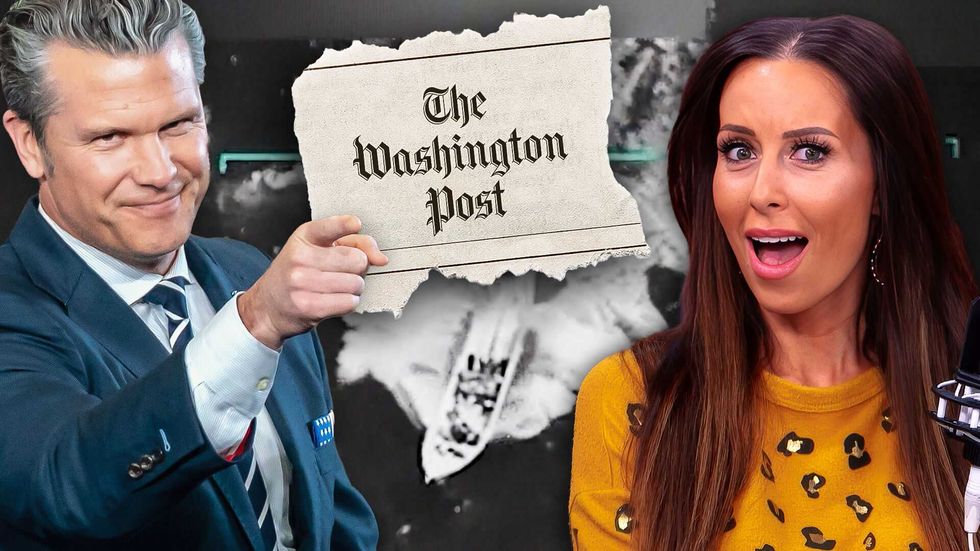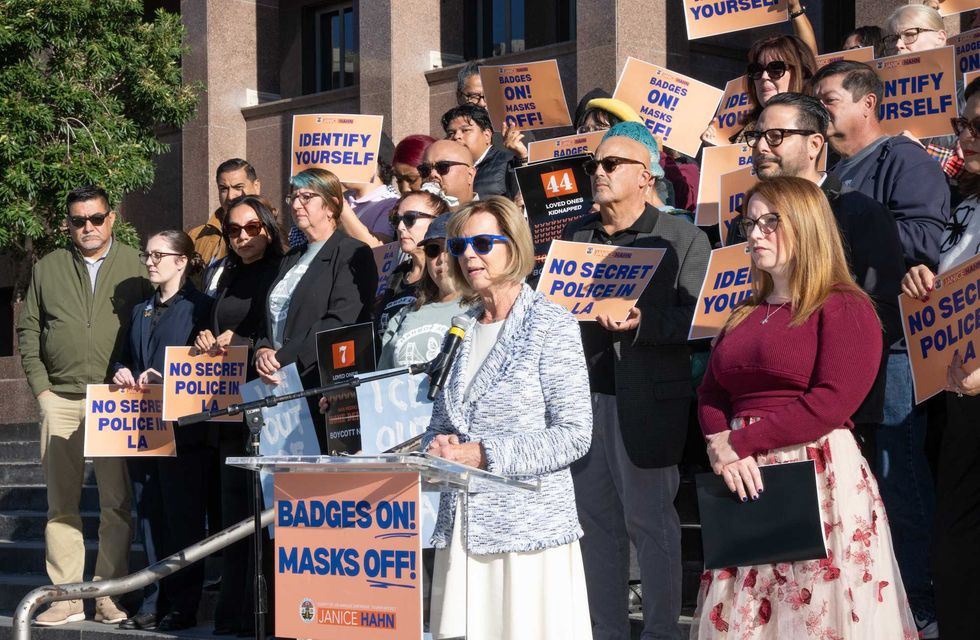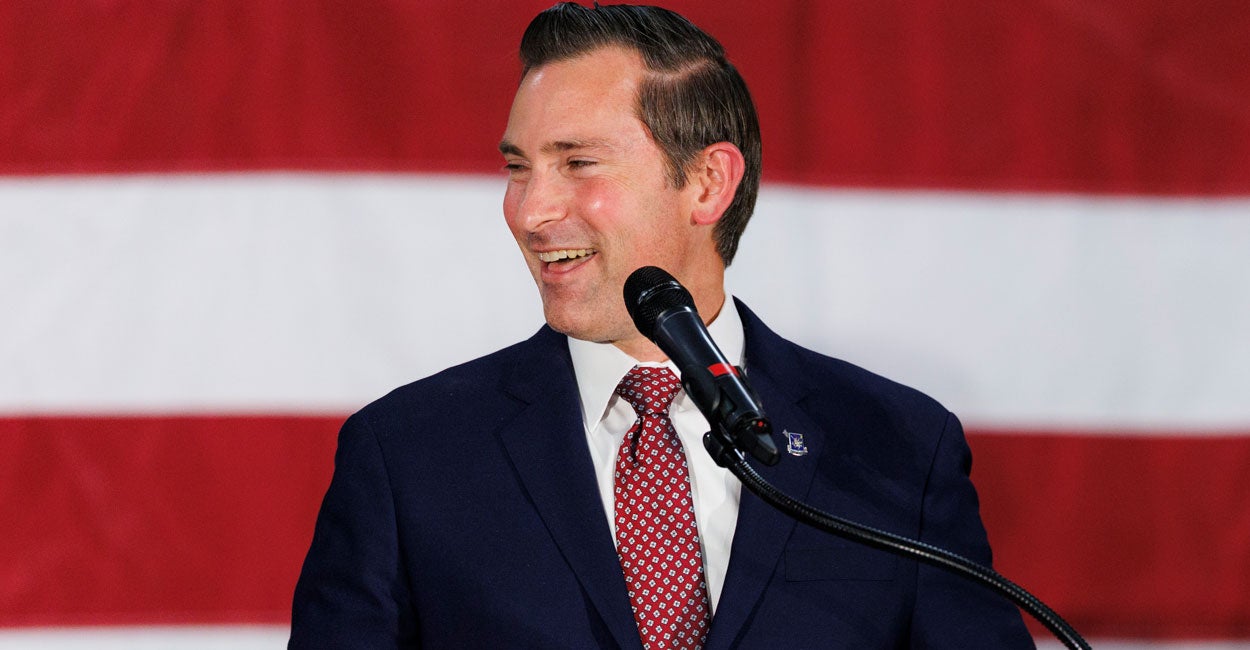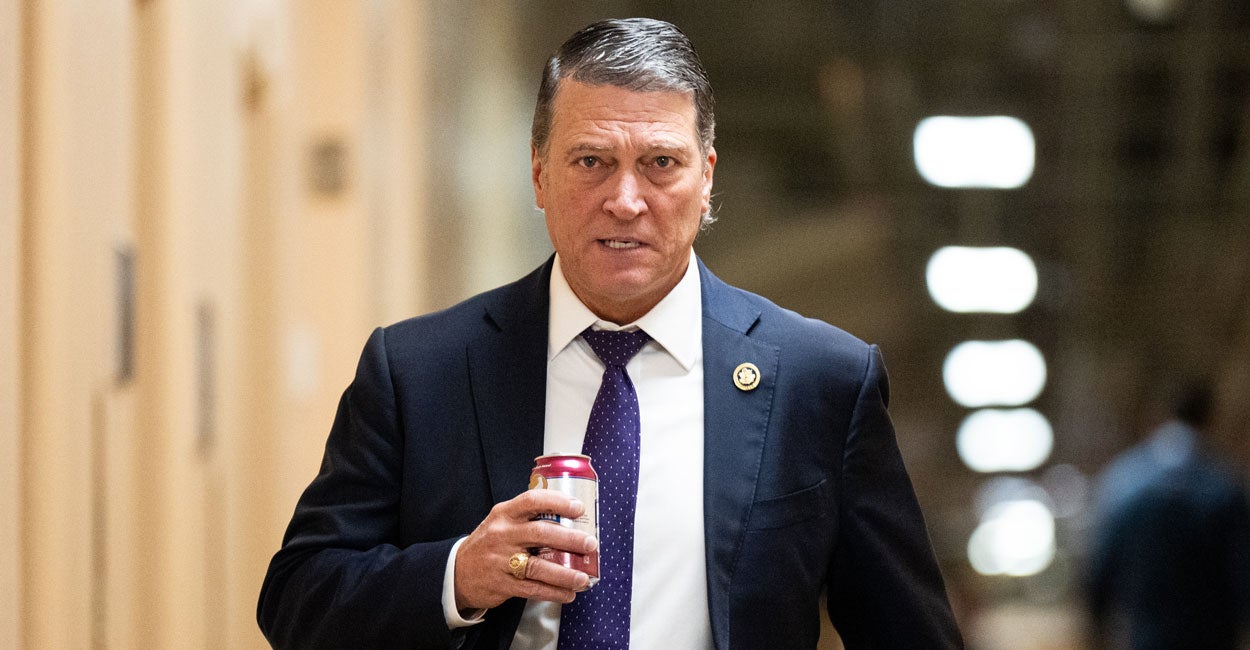These Federal Judges Are Trying To Stop Trump From Dealing With The Fentanyl Crisis

We’ve been trending in this direction for some time now, but after yesterday’s ruling by a three-judge panel on the United States Court of International Trade in Manhattan — which struck down all of the Trump administration’s tariffs — it’s now official: We don’t need any more rulings from federal judges about what the president of the United States isn’t allowed to do. Those are completely pointless. Instead, what we need, in our alleged first-world democracy, is a ruling from some federal court explaining, in as much detail as possible, what exactly the president of the United States does have the authority to do while in office. That would be the most efficient way forward, at this point.
In just the past five months, federal courts have held that the Trump administration has no authority to do the following:
- Change federal government websites
- Fire any Executive Branch employees
- Ban mentally disturbed individuals from joining the armed forces
- Eliminate slush funds for corrupt NGOs
- Stop funneling billions of dollars of taxpayer money to anti-white universities like Harvard
- Eliminate wasteful “administrative spending” that’s tacked onto every single scientific grant
- Deport illegal alien gang members — even the wife-beaters and terrorists
- Cut federal funding to child castration services for children
And now, after all of these rulings and dozens more like them, we heard last night from the U.S. Court of International Trade that the president of the United States also does not have the power to impose emergency tariffs on foreign nations. Before we go into the details about this ruling and the problems I have with it, there’s a very important point that needs to be made here, which is this: Even if you think tariffs are a terrible idea — and really even if you believe that the Court of International Trade made the right ruling in this particular case — you simply cannot deny that the judicial system in this country, because of its own overzealousness, has never been less legitimate than it is right now.
The sheer number of injunctions that have been issued, blocking every single agenda item that the democratically elected president has attempted to execute, is unprecedented in the history of the United States. We’re in comical, “jump-the-shark” territory. And that’s a very, very big deal, because courts don’t have militaries. They can’t enforce their own rulings. When they lose legitimacy, they lose everything. And with this latest ruling, on top of all the other rulings, legitimacy is long gone.
So who does have legitimacy? Where does legitimacy come from? For judges, legitimacy comes from restraint and consistency, and adherence to the law. For presidents, it comes from democratic elections. It comes from campaigning, and openly telling voters what you plan to do, if and when you’re elected. And with that in mind, you will not find a single person — even the most deranged anchor on MSNBC — who will disagree with this statement: Donald Trump explicitly campaigned on imposing massive tariffs on foreign nations in order to return manufacturing to the United States. That was always a core plank of his domestic agenda. That doesn’t mean you have to agree with him. You can feel however you want about tariffs. But it does mean that Trump’s plan was put to a vote. And the American people decided that Donald Trump’s economic agenda was the best way forward. That’s legitimacy. If that’s not legitimacy, then legitimacy has no meaning. And neither does democracy.
Again, even on MSNBC, they concede this point. Last night, as he was celebrating this court decision, the perpetually unhinged Lawrence O’Donnell admitted that Trump’s entire campaign was about tariffs. He says he was talking about tariffs the whole time — and he blames the “campaign press” for not talking about tariffs enough. Watch:
The point of this little diatribe from Lawrence O’Donnell is to suggest that, if only the “campaign press” had covered Trump’s tariffs a little bit more, then the voters would have rejected his entire candidacy. This is a very familiar tactic on the Left. They did the same thing with Russiagate. They claimed that, if only people knew that the Russian government had spent $100,000 on Facebook memes back in 2016, then they would never have voted against Hillary Clinton. You poor, poor voters. You’re always being tricked by Donald Trump. You have no agency whatsoever. Thankfully, the courts will correct that little problem for you.
This is about as undemocratic as it gets. It is asinine, narcissistic and above all, totalitarian. Of course, it wasn’t just this one MSNBC blowhard who discovered that Trump was talking about tariffs all the time. The entire country heard Trump talk about tariffs. And then they overwhelmingly decided to elect him. And that should matter, more than anything else. Unless the president clearly and unambiguously exceeds his authority under the constitution, then the courts should respect the will of the voters.
WATCH: The Matt Walsh Show
And in this case, if you read the ruling from the panel of judges on the United States Court of International Trade, you’ll discover that Donald Trump did not actually exceed his authority. In order to come to the opposite conclusion, a lot of mental gymnastics were required on the part of this three-judge panel. I want to start with the court’s handling of Trump’s fentanyl-related tariffs on Mexico, Canada, and China. At the moment this ruling was issued, the tariffs stood at 25% for Mexican and Canadian products, and 20% for Chinese products (with an exception for Canadian energy, which remained at 10%).
Normally, the president can’t issue tariffs that are quite this high. However, as you probably remember, the Trump administration determined — rightly — that fentanyl trafficking is a national emergency because tens of thousands of Americans are dying each year from fentanyl that’s imported from overseas. Therefore, under the International Emergency Economic Powers Act, the White House asserted its authority to impose substantial tariffs on Mexico, Canada and China — tariffs that are much higher than they otherwise could be.
Under this emergency act, the president is allowed to, “… deal with any unusual and extraordinary threat, which has its source in whole or substantial part outside the United States, to the national security, foreign policy, or economy of the United States, if the President declares a national emergency with respect to such threat.”
Again, the president can, “deal with any unusual and extraordinary threat, which has its source in whole or substantial part outside the United States … if the President declares a national emergency with respect to such threat.”
That’s a direct quote from the text of the International Emergency Economic Powers Act, which became law in the 1970s. That’s the authority Congress delegated to the president. Under this Act, the president can impose substantial tariffs to “deal with” any “extraordinary threat,” as long as he declares a national emergency. So you might be asking: Isn’t that exactly what happened in this case? Didn’t Trump impose the fentanyl tariffs in order to pressure countries like Mexico and China to stop allowing fentanyl into this country? Under the terms of this law, isn’t the president implementing these tariffs to “deal with” the fentanyl crisis?
According to the trade court, the answer to that question is no. Here’s their reasoning. They focus extensively on the words “Deal with” in the law that I just read.
Here’s what they said:
‘Deal with’ connotes a direct link between an act and the problem it purports to address. A tax deals with a budget deficit by raising revenue. A dam deals with flooding by holding back a river. But there is no such association between the act of imposing a tariff and the ‘unusual and extraordinary threats’ that the [Fentanyl] Trafficking Orders purport to combat. … The [Fentanyl] Trafficking Orders do not ‘deal with’ their stated objectives. Rather, as the Government acknowledges, the Orders aim to create leverage to ‘deal with’ those objectives.
In other words, the court is acknowledging that the fentanyl tariffs are being used by the Trump administration as a form of leverage, which can force foreign countries to “deal with” the fentanyl problem. But they’re claiming that, under the law, that’s not allowed. That’s not how you’re supposed to “deal with” fentanyl, according to this three-judge panel. The judges are saying that the Trump administration is assuming too much power, and that “leverage” isn’t the appropriate way to “deal with” an emergency. Therefore, apparently, the Trump administration needed to impose a tariff specifically on fentanyl imports, or something like that — even though it would obviously accomplish nothing at all, because no one is declaring their fentanyl shipments at the border.
I want to emphasize this a little more, because this part of the ruling really deserves more attention than it’s getting. Congress passed a law that allows the president to “deal with” any emergency he declares. And now, decades later, this trade court is saying, in effect — “no, you can’t deal with it like that.” But there’s nothing in the law that justifies their ruling. The court just makes it up. The only reasoning that the court provides — which is contained in two paragraphs at the end of their opinion — is that the Trump administration’s approach would justify any kind of tariff they wanted to impose, no matter how ridiculous. They’re saying that, if Trump can use “leverage” as a justification, then he can impose whatever tariff he wants. But that’s not true. There has to be an underlying emergency, first of all. And the deaths of tens of thousands of Americans every year certainly qualifies.
Additionally, there’s evidence that, in this case, Trump’s “leverage” is indeed working. Within days of Trump’s sweeping tariffs on Canada, for example, Trudeau appointed a fentanyl czar and pledged to screen exports more carefully, in order to prevent fentanyl from entering into this country.
So we’re not talking about some arbitrary tariff that has no connection to reality. We’re talking about a tariff that has already produced tangible results that will stem the flow of fentanyl. But apparently, that’s not good enough.
I’m highlighting this part of the ruling because it underscores the extent of the judicial coup we’re witnessing. Congress delegated authority to the president to “deal with” an emergency. He attempted to do that. And then the court overrides him, based on ad hoc reasoning that invalidates the will of the voters, who elected the Trump administration (and the members of Congress who passed that emergency tariff law). Again, it’s fine if you think the tariffs are a bad idea, or good idea, or if you have mixed feelings about it. But the solution, in that case, is for Congress to rescind the tariff power — in whole or in part. The solution is not for random courts in Manhattan to override the president and the Congress, based on very strained interpretations of the law.
This ruling has already been appealed, and it’s clear that the Trump administration can still impose tariffs — albeit reduced ones — under the non-emergency tariff powers that have been passed by Congress. And late on Thursday, a federal appeals court put a temporary stay on the court’s ruling. So the ultimate outcome here is still uncertain. What’s not uncertain is that federal judges, once again, have undermined what’s left of their legitimacy with this ruling. If this had been the very first injunction against a Trump administration policy, it wouldn’t be as much of a crisis. People may even give the judges the benefit of the doubt throughout the appeals process. But we’ve seen more than 100 rulings like this by now. This is unsustainable — to the point that, if one of these federal judges somehow manages to issue a good ruling, no one will follow it. That’s not the ideal outcome for this country or the rule of law, obviously. But with this decision from a court that no one has ever heard of — which erases the president’s congressionally-approved authority to “deal with” national emergencies — it’s the outcome that now appears to be inevitable.
Originally Published at Daily Wire, Daily Signal, or The Blaze
What's Your Reaction?
 Like
0
Like
0
 Dislike
0
Dislike
0
 Love
0
Love
0
 Funny
0
Funny
0
 Angry
0
Angry
0
 Sad
0
Sad
0
 Wow
0
Wow
0



